Total War: Pharaoh – Ancient Legacy guide

Contents
We think about the Roman Empire, when we think about something ancient these days – some of us even think about it several times a day. But if we could ask a Roman about something they considered ancient, someone educated may point you towards Egypt. To give some perspective: Egypt’s First Dynasty likely began around 3,100 BCE, marking the country’s unification into a single kingdom, and that realm more or less survived until 30 BCE when the Romans annexed it. The Great Pyramid of Giza was built around 1,800 years before Rome was even founded.
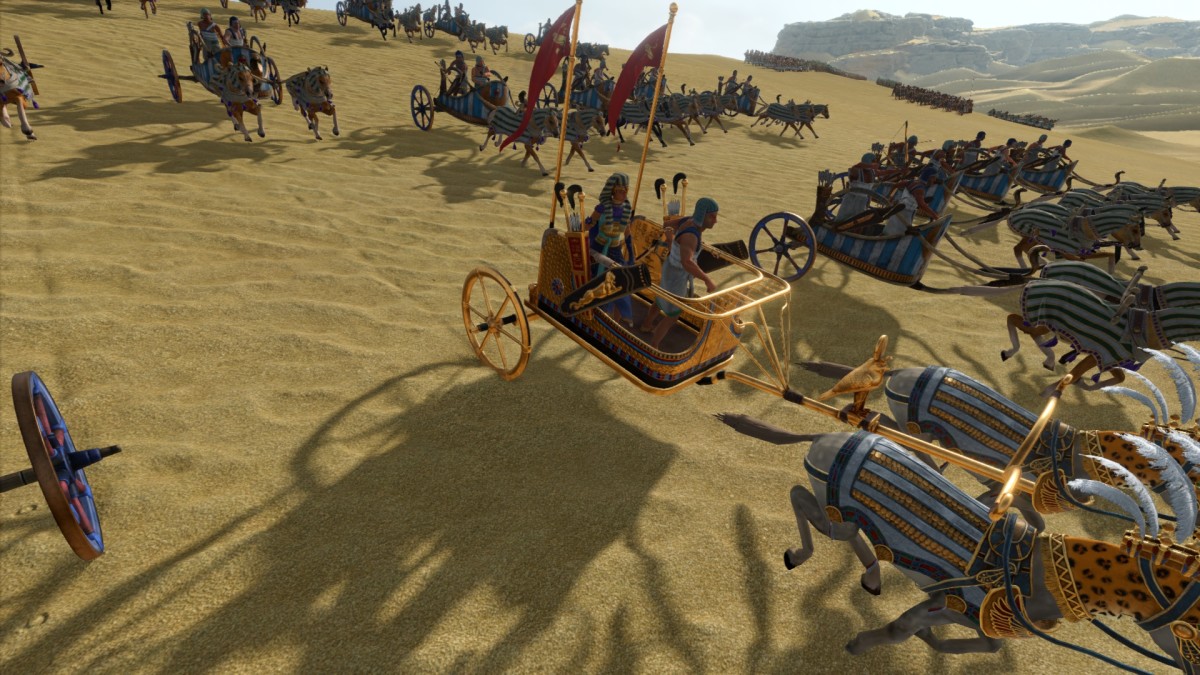
This land, its history, and its traditions were truly ancient even back then – and it’s appropriate that Total War: Pharaoh pays tribute to this age with its Ancient Legacies mechanic. In this guide, we’ll explain all Total War: Pharaoh Ancient Legacies, so read on if you need some help on deciding which one to go for in your current campaign.
Total War: Pharaoh – Ancient Legacies explained
What are Ancient Legacies in Total War: Pharaoh, anyway? Basically, you choose to emulate an ancient Egyptian or Hittite ruler, which unlocks special mechanics with a massive impact on your play style. You can only choose a single Ancient Legacy per campaign, which you do after joining the Egyptian or Hittite realm.
There are four Ancient Legacies to choose from when joining the Egyptians and two for the Hittites. The Canaanites do not have their own Ancient Legacies. Remember that you can join the Egyptian or Hittite realms regardless of your own culture – you can use an Egyptian Ancient Legacy even as a Hittite or Canaanite upon joining the Pharaoh’s court.
Total War: Pharaoh – Egyptian Ancient Legacies
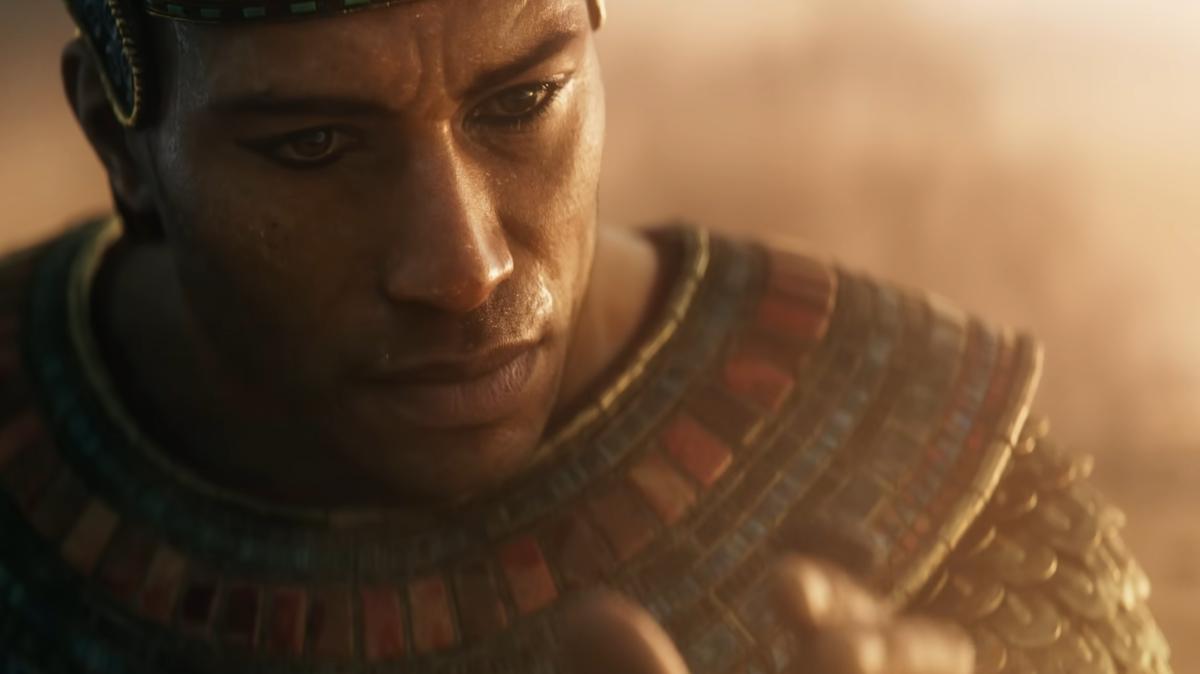
Akhenaten
The Pharaoh Akhenaten – initially known as Amenhotep IV. – attempted to supplant the traditional Egyptian pantheon of gods with a different kind of faith (scholars still debate the definition of what one should call it, be it monotheistic or syncretistic or something else). After his death, this faith was quickly dismantled in favor of the old gods and Akhenaten’s record as ruler was purged.
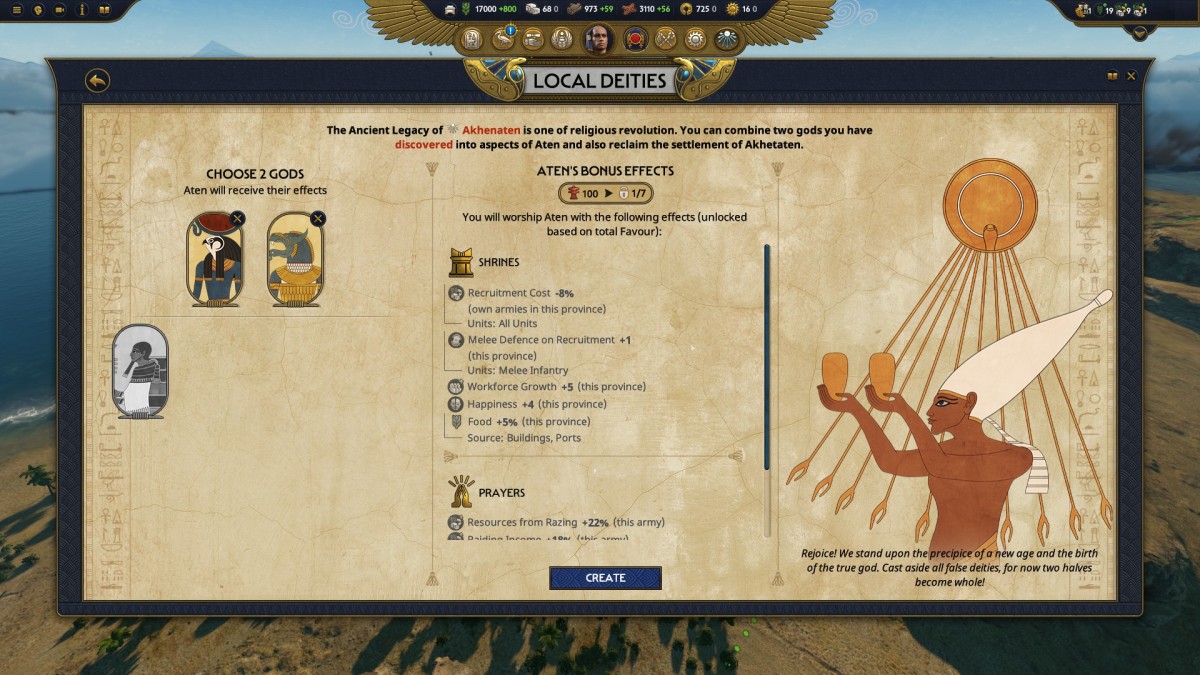
If you choose to follow this Ancient Legacy, you can select two gods from the ones you’ve so far discovered in your game and combine them into the Aten – your new and only god. Worshiping the Aten will unlock additional bonuses for you and you’ll be able to colonize the ruined city of Akhetaten on the Nile, which Akhenaten had originally founded as a sacred site for the Aten.
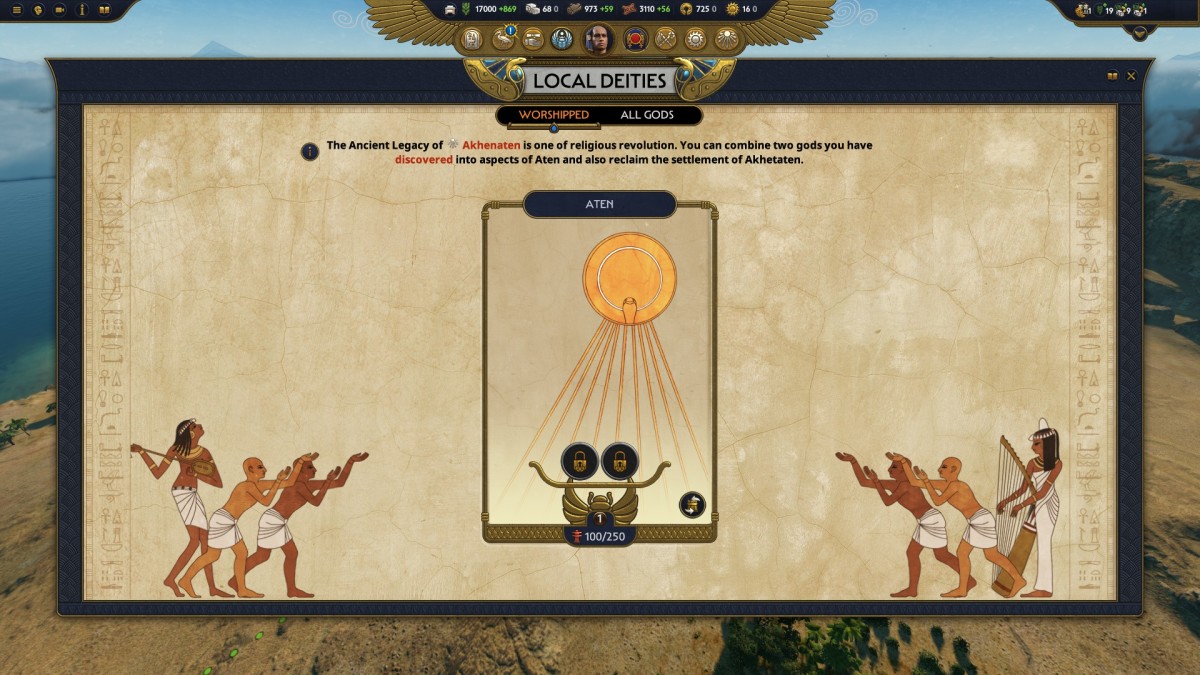
This mechanic is very versatile, since you can make up your own god to support a peaceful or aggressive play style.
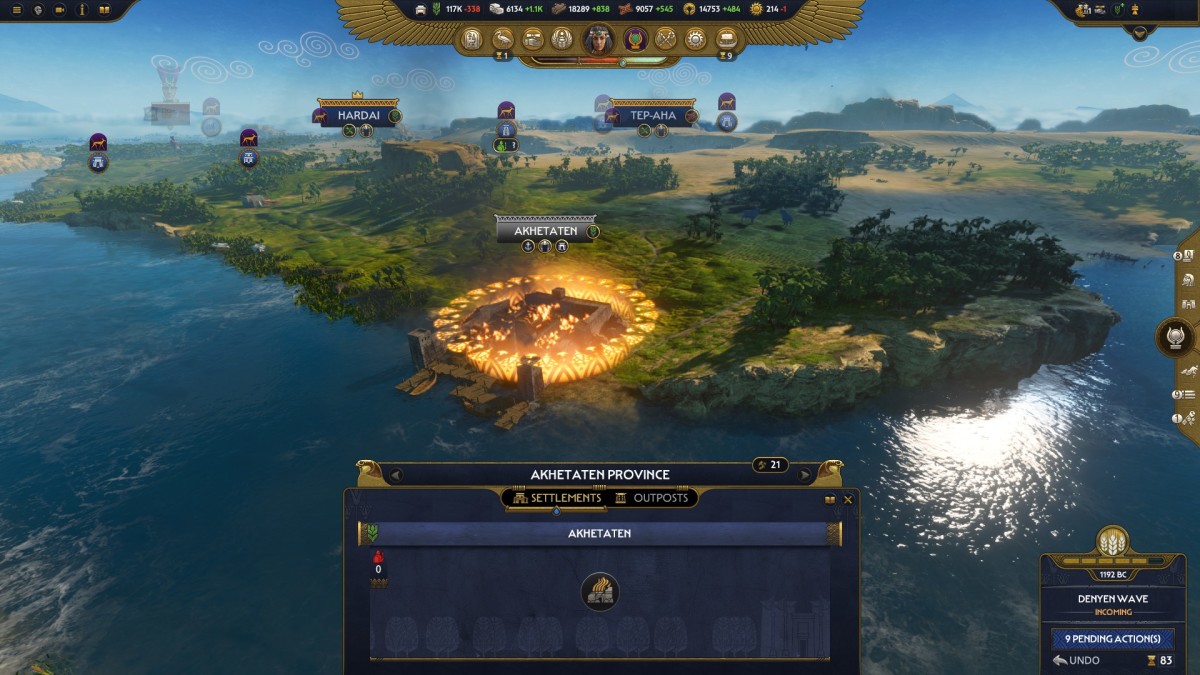
Hatshepsut
Hatshepsut is one of the first female Pharaohs that fully adopted the titles and powers of a ruler when she acted as regent for her young stepson and nephew, Thutmose III. She’s credited with reopening important trade routes by supporting merchant expeditions to the south.
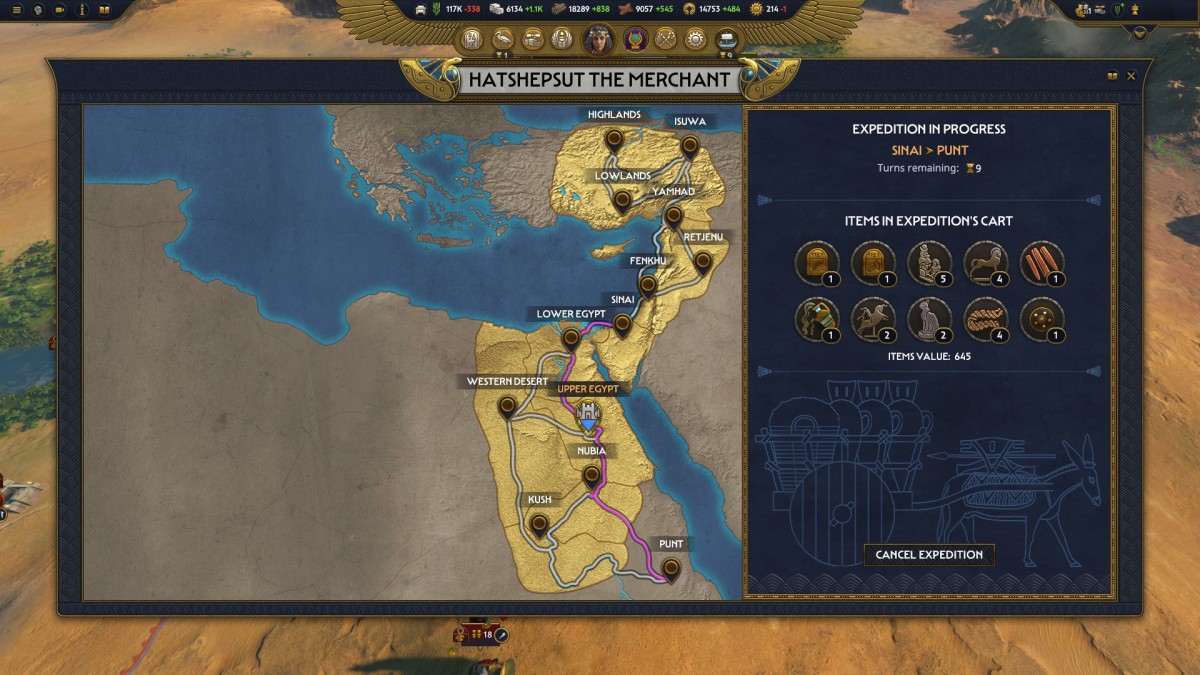
This is why the Hatshepsut Ancient Legacy allows you to send a merchant caravan out into the world to sell and purchase goods. Upon returning to the capital, these can be exchanged for a boost in resources, made into ancillaries for your characters, or used as province boost effects. If you plan your route in a clever way to bring goods that are in-demand at your next destination, you can bring in quite the profit with this mechanic.
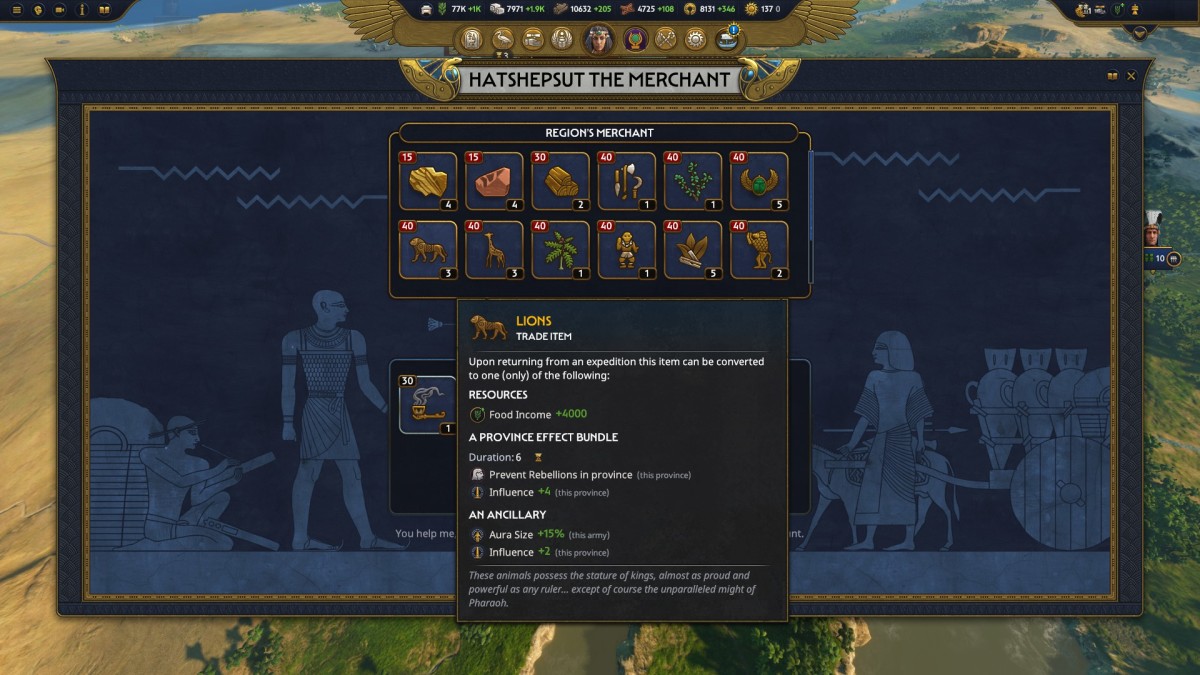
It can support both a peaceful and aggressive play style.
Khufu
Khufu, also known as Cheops, is the Pharaoh known to have commissioned the Great Pyramid of Giza – the monument that’ll generally come to mind when you think of pyramids.
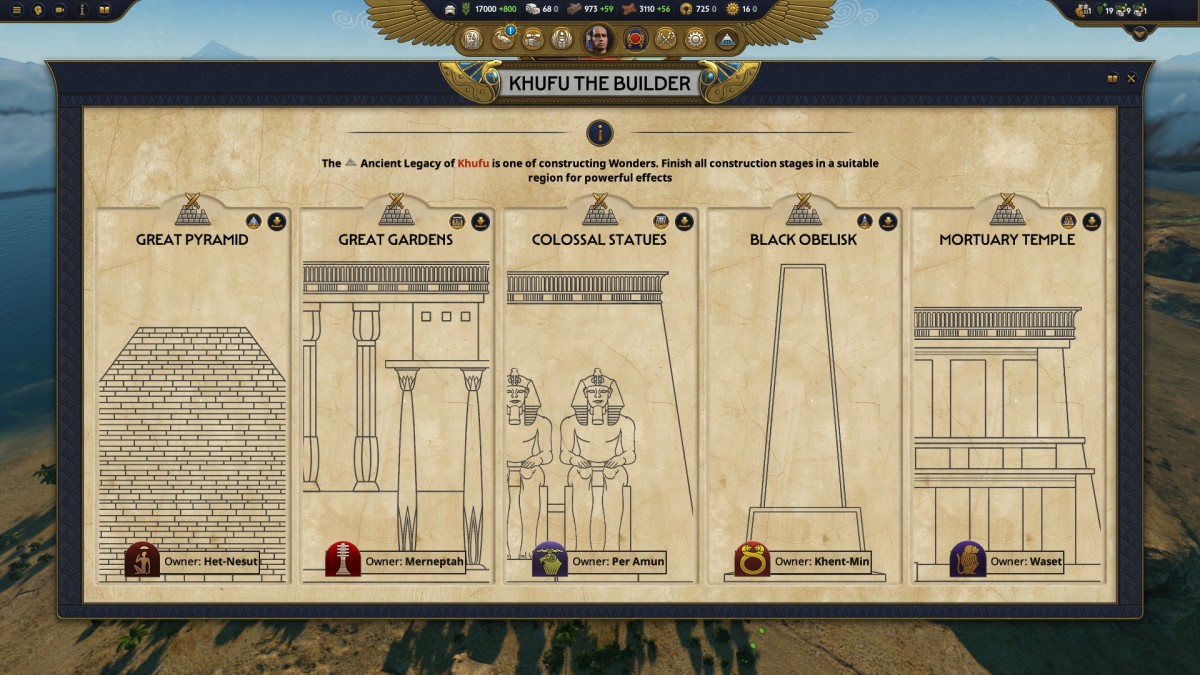
Naturally, the Khufu Ancient Legacy is all about erecting great monuments. Once you’ve chosen your next project, you’ll first need to conquer the province where it will be constructed (those are pre-determined) and then collect the required resources. Other powers may want to sabotage your great work, so be sure to protect the construction site. Upon completion, these monuments will provide you with a nice passive bonus as well as a hefty amount of Legitimacy.
This play style requires some aggression to secure the construction sites, if you don’t already have them in your possession, but otherwise works great with a style focused on the economy.
Thutmose III.
Thutmose III. succeeded Hatshepsut after co-ruling with her for over twenty years and serving as chief commander of her armies. He made his name as a warrior-king, expanding Egypt’s ancient empire to its largest extent and founding the country’s first navy.
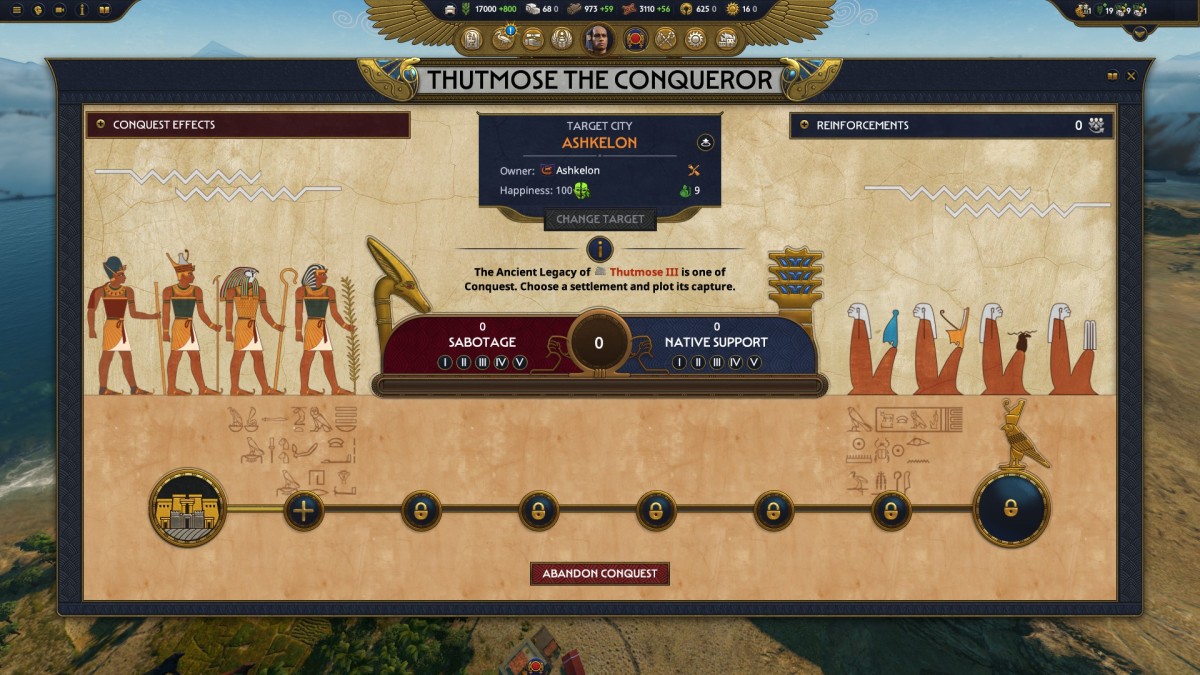
The Thutmose III. Ancient Legacy is all about military expansion: You can pick any city that serves as a Pillar of Civilization and mark it as a target. This enables you to take special actions against this city, destabilizing it ahead of your assault. You can gain reinforcements for your attack on the city in this way or gain additional resources once you conquer it.
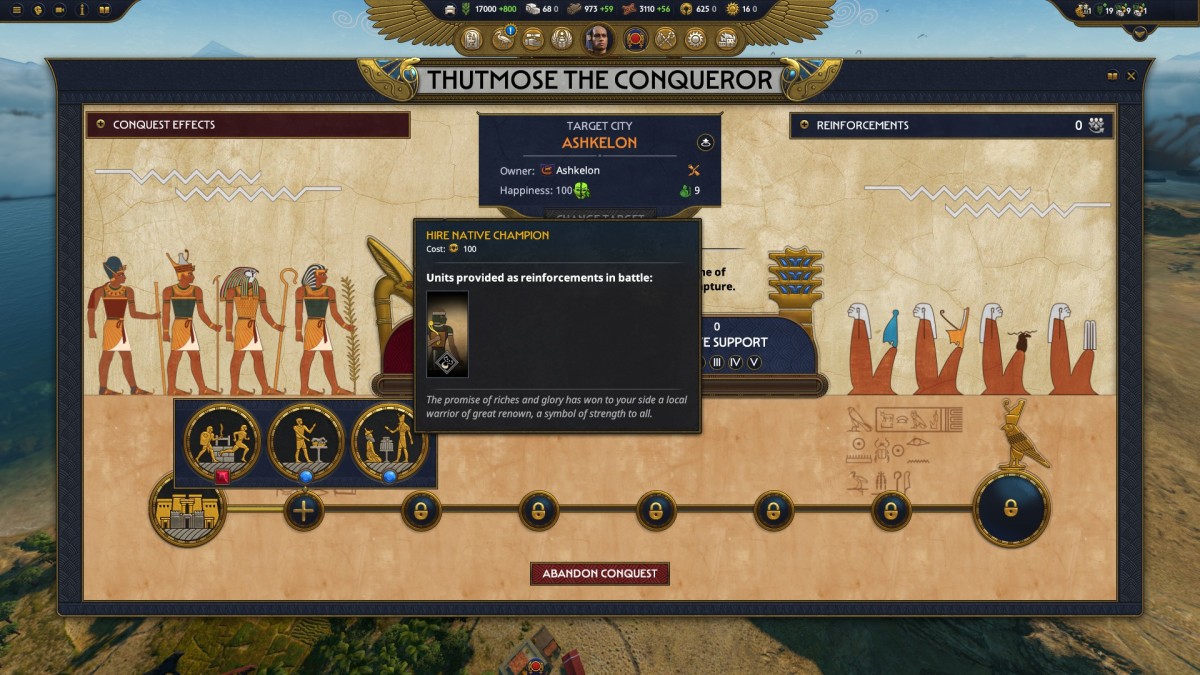
This Ancient Legacy is without a doubt the best fit for an aggressive play style.
Total War: Pharaoh – Hittite Ancient Legacies

Muwatalli II.
Muwatalli II. was the Hittite Great King opposing Ramesses II. at the famous Battle of Kadesh, likely the biggest chariot battle in history. Other than that, Muwatalli II. is known for relocating the Hittite capital from Hattusa to Tarhuntassa.
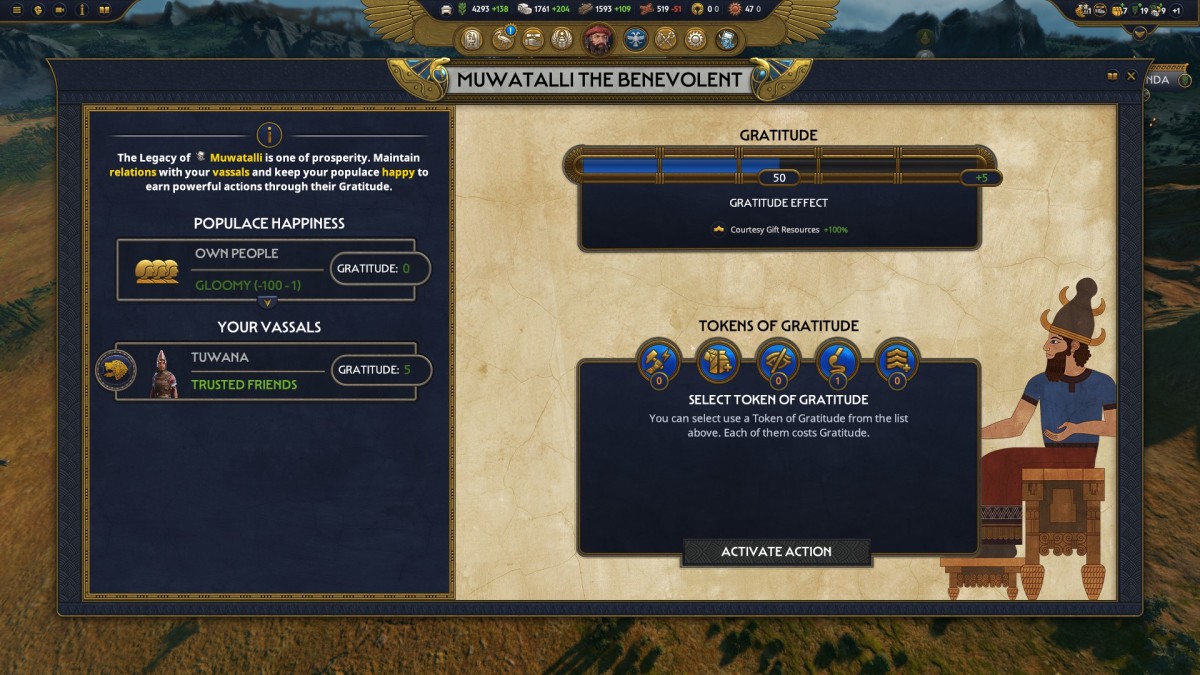
The Muwatalli II. Ancient Legacy allows you to receive special gifts and favors from your vassals and population when they are happy with you. By keeping Happiness in your provinces high and having cordial relationships with your vassals, you gain Gratitude. This can be exchanged for all sorts of useful ancillaries, equipment pieces, units, and more.
It can support both an aggressive and peaceful play style.
Tudhaliya I.
Tudhaliya I. is known for conquering much of Western Anatolia for the Hittite Empire, though other details about his life are hard to reconstruct.
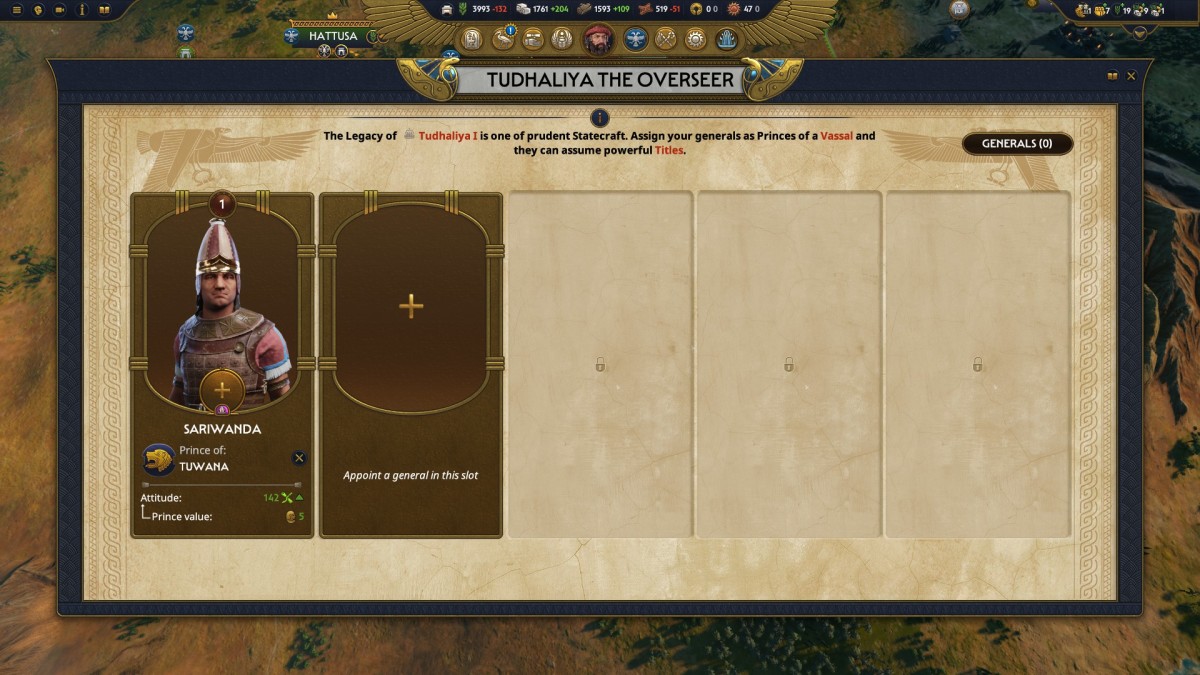
The Tudhaliya I. Ancient Legacy is centered around vassals and generals. You can make your generals into Hittite Princes and give them command over one of your vassals, which unlocks special titles for them to use. They also gain the ability to recruit native units from the vassal’s home region. Winning battles with these Princes improves the relationship between you and those vassal states.
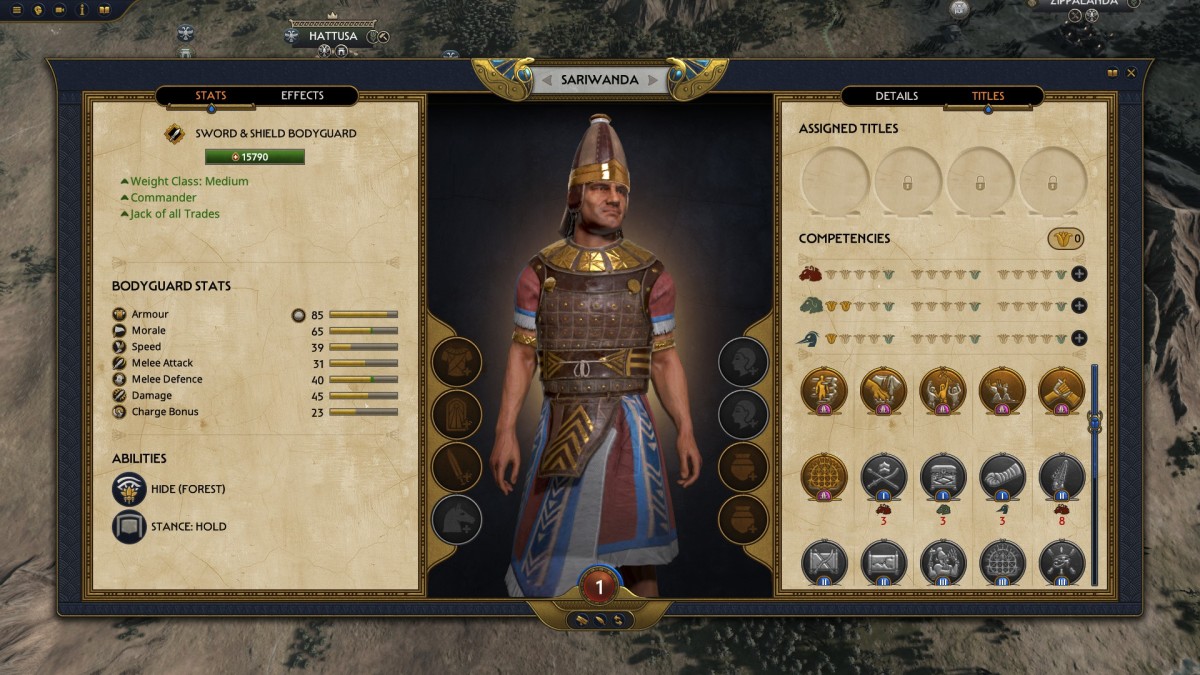
It definitely favors an aggressive play style.
Now you know all Ancient Legacies in Total War: Pharaoh and can hopefully choose the one that’s most appropriate for your current situation.
For more assistance, check out our Total War: Pharaoh tips for beginners and learn how to become Pharaoh or Great King.
